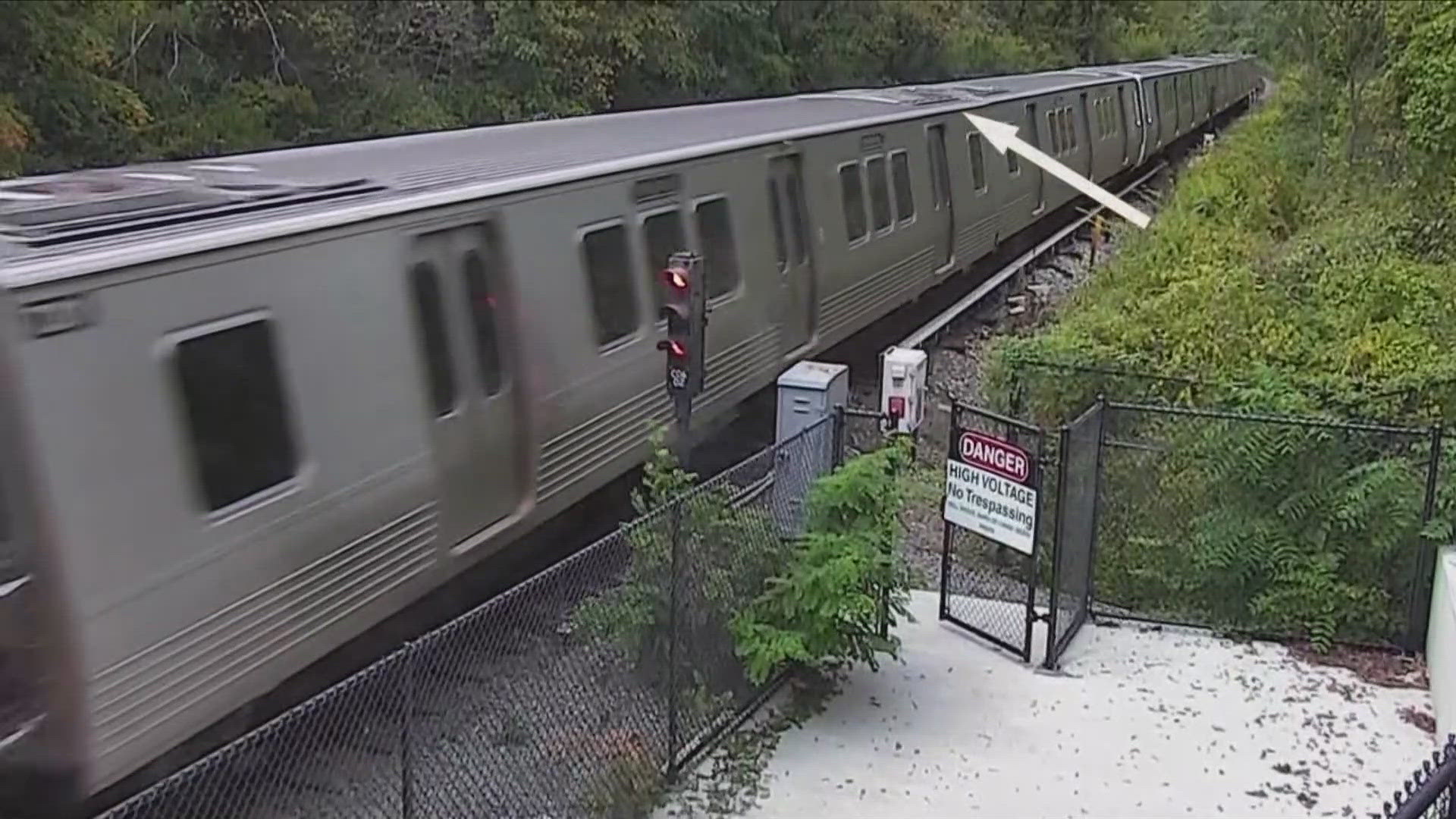ARLINGTON, Va. — The chair of the National Transportation Safety Board blasted the Washington Metropolitan Area Transit Authority for what it called its "poor safety culture" going back decades. The harsh feedback comes as the agency released its final report on a 2021 Blue Line derailment in Virginia.
The new report pointed to an issue known as wheel migration as the probable cause of the derailment, meaning the wheels spread beyond the track. While discussing the derailment, NTSB Chair Jennifer Homendy said the issue is not new, and it is something WMATA knew about for at least 10 years.
WMATA supplied the wheelset design for the 7000 series railcars to match their older railcars, then changed the design specifications after they identified 33 instances of back-to-back wheel failures in 2014 in the legacy fleet – before the first 7000 series car was even delivered. While WMATA changed the specifications for those cars after discovering the failure, it wasn't until 2017 that WMATA made specification changes to the 7000 series. Homedy said the car that derailed in 2021, was under the old specifications.
Homedy also said this is not something new for the transit agency. She called it an example of WMATA's poor safety culture.
“Failing to proactively identify risk is something that’s repetitive in WMATA’s history,” she said.
The Blue Line train that derailed in 2021 did so with 187 passengers on board. No injuries were reported.
"We're lucky this didn't end up in tragedy," Homedy said.
Homedy took things a step further and read from the NTSB's report on the 2009 Fort Totten Metro crash, which resulted in the deaths of nine people, and injured dozens more.
"Shortcomings in WMATA's internal communications, in its recognition of hazards, its assessment of risk from those hazards, and its implementation of corrective actions are all evidence of an ineffective safety culture within the organization," she read. "You could take that line and apply it to today. It's the same story again and again since 1970."
But Homedy said the problem goes beyond the transit agency itself. She said the lack of government oversight keeps WMATA from being held accountable.
“Human error is a symptom of system that needs to be redesigned,” she said.
She called on the Federal Transit Administration to use the authority provided by the FAST Act of 2015 to establish federal safety standards for passenger rail transportation.
Following the derailment in 2021, WMATA removed all 7000 series railcars from service. They have slowly returned some cars to service, inspecting wheels every 30 days, and replacing wheels on about 20 railcars per month. It is expected to take several years to return the entire fleet to normal service, costing an estimated $55 million.
Out of the nearly 3,000 wheelsets, almost 200 have been replaced, according to NTSB.
To help make sure Metro is taking the proper steps to ensure safety, the Washington Metrorail Safety Commission is in collaboration.
"There's still a lot of activities going on and that's why we're here every day watching each of those things and monitoring those things, some of which will take a significant amount of time, to get to the finish line on but each little step makes thing safer," Max Smith of WMSC told WUSA9.
WMATA issued the following statement following the release of the report:
"Metro fully supports the NTSB Derailment report and thanks all parties to the investigation for their leadership and thoughtful approach. The collaboration and professionalism between the NTSB and WMSC have been critical to our ability to move this process forward, and we appreciate that our proactive steps have been acknowledged. Metro has issued a fleet defect notice to Kawasaki related to our performance-based contract. Based on the contract, Kawasaki is responsible to pay all costs to fix this wheelset defect. We are confident that our current Wheelset Replacement program will address this wheelset defect as we work over the next several years to re-press all 7000-series wheelsets at a higher press tonnage and increased interference fit."
Kawasaki responded by saying any suggestion it should absorb the cost is "not rooted in reality." It argued that it followed designs by WMATA.
"WMATA supplied the wheelset design for the 7000 series railcars to match their older railcars and then failed to alert Kawasaki when they increased the mounting pressure for those older railcars after they identified 33 instances of back-to-back failures in 2014 – before the first 7000 series car was even delivered," a statement from Kawasaki Rail Car, Inc. said. "The mismanagement by WMATA under prior leadership, cited in the NTSB’s final report, comes as no surprise to those who have followed the agency. We look forward to seeing the 7000 series railcars resume their legacy of safety and reliability as WMATA implements the recommendations outlined in the NTSB’s report."

